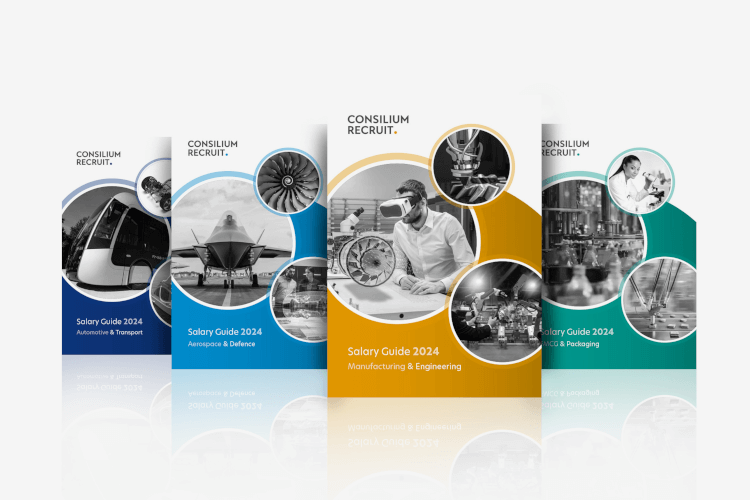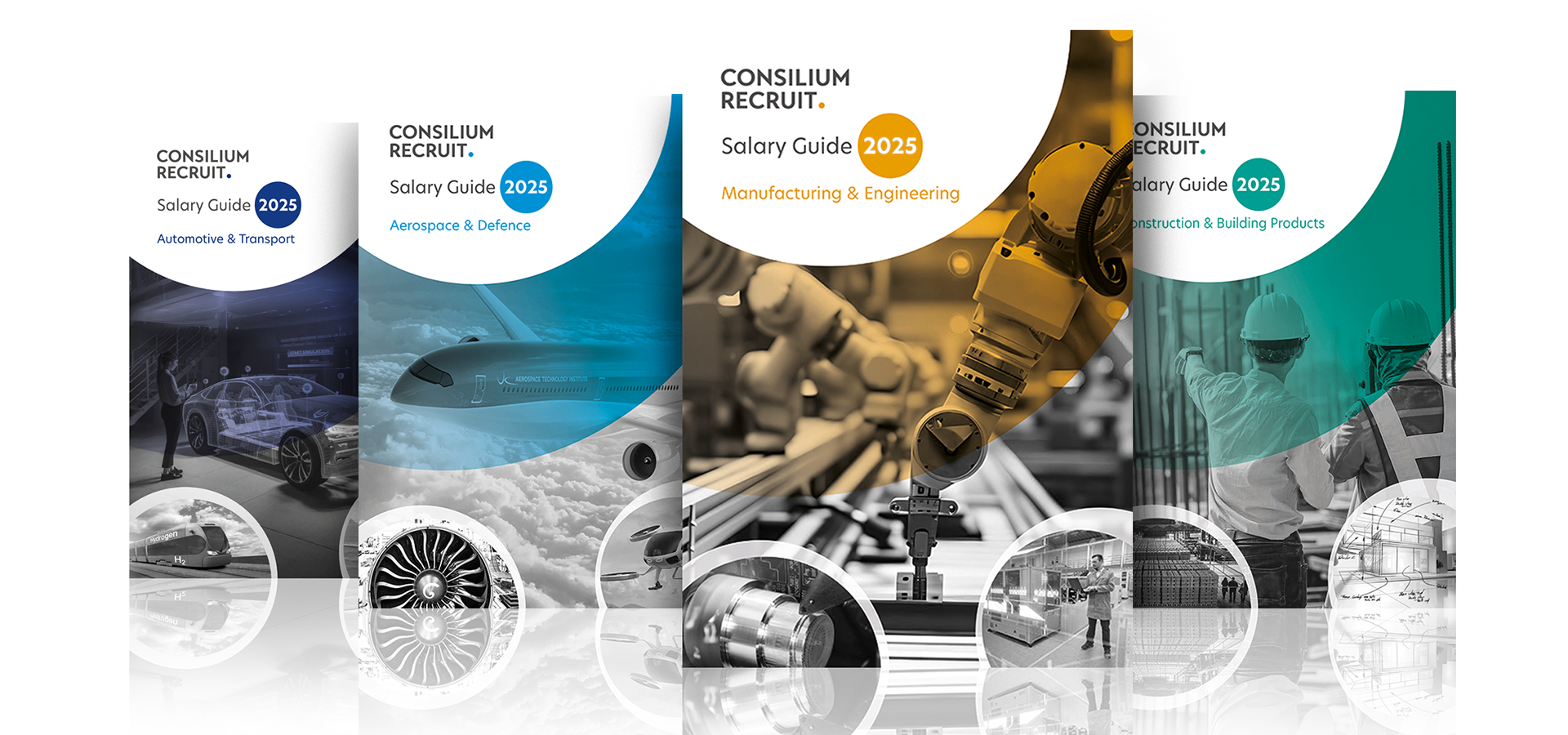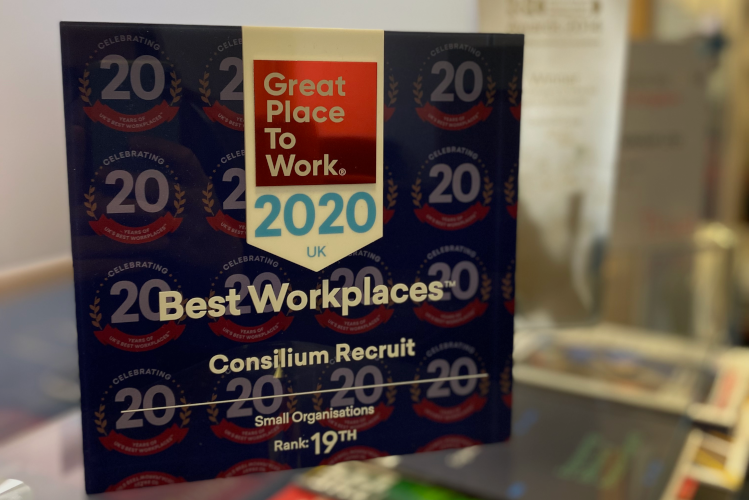Going for Gold…Red, Blue or Black!
“As featured in the latest edition of The Chemical Engineer publication, James Colley - Director at Consilium Recruit looks at career opportunities available to Chemical Engineers both in traditional non-fossil fuel sectors and emerging sectors”

Going for Gold…Red, Blue, or Black!
James Colley looks at opportunities available to chemical engineers both in traditional non-fossil fuel sectors and emerging sectors.
For chemical and process engineers looking to transition to a new sector, the most logical route is to consider proximity to your current skill base and the relevance of your experience to that sector. Conventional wisdom used to dictate that people developed a skills base, honed it over time and then either progressed within the same field as a subject matter expert or went on to lead and manage. As technology and the rapid pace of change pushes innovation and creativity in the UK, it is not uncommon to discover there are now vacancies in new businesses, and sectors that didn’t exist as little as five years ago. Disruptive technologies often accelerate this pace of change. It makes the jobs market an exciting (and sometimes bewildering) place to enter.
If you haven’t read my first article on preparing for careers transition, you might wish to read that first for practical advice on the likes of preparing your job applications and getting set for job interviews. Otherwise, let’s look at the sorts of opportunities available to chemical engineers both in traditional sectors and then further out in emerging sectors.
How far from the bullseye – and why?
For chemical and process engineers with your core skills in science, mathematics and related process applications, there is a broad range of options to consider when assessing your drivers for career change. You should always ask yourself some searching questions when looking for new job opportunities.
Firstly: why am I looking for a new role? There could be a number of factors including professional aspirations, pending redundancy, a desire or need to relocate, or dissatisfaction with your current employer or sector. The short answer is that people change jobs and sectors with greater frequency nowadays thanks to more flexible working arrangements facilitating this trend, especially post-pandemic.
When considering a change of sector or type of employer, ask yourself: What is my reason for changing? Will this be met by changing sector? And if it does then what direction to take? As recruiters, we envisage the classic archery target model. The central area being the current sector and the surrounding bands being the respective distance from the core skill base. So, very crudely, for a chemical engineer seeking to explore career opportunities outside of the immediate sector, the closest neighbours include manufacturing and wider engineering, particularly electrification due to the chemical processes and related developments within battery technology.
Hydrogen-based propulsion and related technologies also will be a naturally synergistic sector for chemical engineers to develop career paths within too.
In reality, unless you have a clear desire to pursue a specific sector, or indeed work for a particular organisation then our advice, however obvious and simple it may sound, is to explore all options! Yes, the organisations and sectors in which they operate will often prove to be the starting point, but the other variables that come into play can often prove to be more meaningful to a job seeker. For instance, far too much consideration is often placed on salary alone, but when considered more closely, sometimes the wider benefits package can prove far more attractive and hence influential.
To explain, employers are becoming ever more aware of their need to compete for talent resulting in an ever increasing spread of inducements that range from monetary based benefits (which may include bonus, profit share, enhanced pension and more), through to more career-focused incentives (training support and professional development, accelerated career progression), and finally lifestyle adaptors (including flexible working, work-from-home options, plus enhanced holiday leave and even sabbaticals).
What’s evident is that lockdown has made many more people re-assess their priorities, lifestyle and ultimately career ambitions. Moving jobs is a big enough commitment but also moving sectors or industries heightens this further. Hence it’s key to consider all of the different benefits and variables from the outset to ensure that any job move is improving your situation on as many different fronts as possible. You may well start your search with the intention of securing a higher salary for instance, but in reality an improved work-life balance may be what you actually desire. Hence, when sizing up one career opportunity over another, always approach it with genuine openness, as you may not realise what you are truly seeking until it is presented to you!
Process-based sectors form very strong neighbours. Chemical and process engineers commonly work in water treatment and food and drink manufacturing, and these sectors are good options for those seeking to move from the likes of oil and gas and refining. The UK FMCG sector is a multi-billion pound sector that needs expertise in manufacturing, engineering, supply chain management and chemistry to produce a range of food, beverage and consumer goods. This sector is looking for those with skills and experience in process engineering, analytical research and expert data handling. Put simply, chemical and process engineers typically have the skills that those sectors need urgently. From my experience helping engineers move sectors, right now there are real opportunities in a wide range of sectors including pharmaceuticals, polymers and plastics, food and drink manufacturing, metal processing and composites suppliers. For more insight on careers available outside of the oil and gas sectors, take a look at The Chemical Engineer’s Career Paths series in which chemical and process engineers discuss the opportunities available in the sectors in which they work.
Moving further out
As we move further away from the bullseye of our archery target, there is a second radius of hugely comparable employers offering opportunities for career development. Typical positions where we have seen chemical and process engineers transition into manufacturing and wider engineering include quality and compliance roles, materials engineering, production management, and environmental engineering.
The current demand for experienced manufacturing and engineering professionals is at an all-time high, with the majority of engineering business reporting difficulties in attracting talent to satisfy customer requirements. As Brexit has disrupted UK-based manufacturing supply chains and time has been “lost” due to the pandemic, businesses are essentially playing catchup during a period of higher demand which skews the curve even further.
These roles are typically concentrated in the main industrial regions including the Midlands, North West, and Yorkshire/North East, although not exclusively. Plenty of manufacturing and engineering organisations, including new startup companies especially are avoiding traditional trends and seeking more attractive, semi-rural locations where factors such as working environment, running costs, the commute and even factors like car parking are greatly enhanced. Depending on how geographically flexible you may be as a job seeker, then your options increase accordingly. Once again, a particular location may appear out of range on the surface but if the employer is prepared to accommodate a degree of home-working then a longer commute for the 2–4 days based on site may suddenly appear more tolerable.
In order to remain competitive and ensure customer requirements are met, the engineering and manufacturing community will look over the fence into near-neighbour disciplines, the analytical and problem-solving skill base of chemical and process engineers will be highly sought after and training or support packages will be developed to ensure new employees make impact quickly.
These can range from vocational courses, through to career-specific industry qualifications, degrees and even MBAs for more senior management. Equally, the importance of learning and development on the effectiveness of a workforce coupled with numerous government incentives has resulted in many larger or employee-oriented organisations appointing their own dedicated training managers and coaches to devise and deliver often tailored development programmes, which is to be applauded.
The days of business producing bullet-point lists of 20 must-have criteria are long gone in the current economic climate. The smart business now knows what development packages are needed internally to ensure transferable skills are quickly harnessed and utilised, along with the importance of maintaining a strong employer brand too.
Traditional chemical engineering to breakout sectors: All within the reach of chemical engineers
On the edge
Moving beyond chemical applications for electrification, and manufacturing and wider engineering, the next radius includes new breakout sectors. These are typically newer technologies, often deemed to be disruptive but often arguably very supportive and partnered to existing industries. Within this group we see digital engineering, AI and the data-led economy. This is where there will be a level of further development needed for candidates transitioning to the sector. However, with these sectors being in their relative infancy, there is a very sizeable framework in place to train new recruits.
In some instances, within the digital space, some technologies are barely 2–3 years old and as such, even seemingly established professionals will have transitioned to the sector fairly recently. The digital economy transcends locations and time zones and, in returning to the original question at the start of the article, what are your drivers for change? Should a candidate be seeking to work from home, away from the confines of an industrial plant or business park, or in agile and multi-site format, then this is an ideal sector to explore. Again, this is a high growth sector experiencing huge demand for talent. The core analytical and data-led toolkit of the chemical engineer makes a good case for a career within the digital economy.
The three areas where skills are in particularly high demand include: system integration, technical architecture, and cybersecurity as businesses increase the deployment of advanced technology. The likes of cloud computing and AI technology are rapidly becoming the mainstay across the majority of business sectors, hence any jobseekers with digital skills (as a user or implementer) will have more options to consider and attract a greater level of interest from potential new employers.
Beyond this, as the radius expands from the nucleus of chemical engineering, we then encounter the type of opportunities where there may be a requirement to take steps back and undertake further training of sufficient depth before joining these sectors. This can be for reason of compliance, sector familiarisation and often just basic competency. The wider the gap to be covered in a transition often correlates to the discrepancy in salary.
So, when considering sectors such as banking, law or recognised vocational routes, we recommend you explore how much work is needed, alongside the personal sacrifices to be made in making the transition from the sector. In each case when you consider transition to a new sector, always revert to the original question – what I am trying to achieve from the change of career path?











